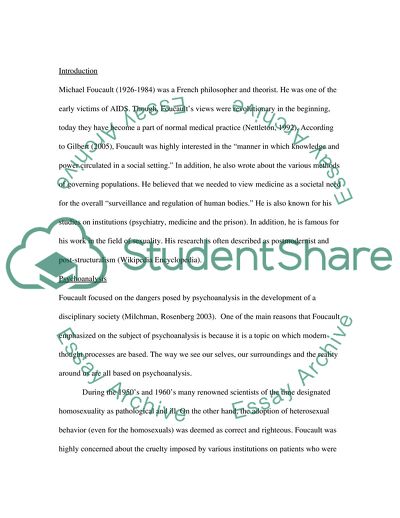Cite this document
(The Foucauldian Psychoanalysis of the Body Term Paper, n.d.)
The Foucauldian Psychoanalysis of the Body Term Paper. https://studentshare.org/psychology/1704283-discuss-the-extent-to-which-a-foucauldian-analysis-of-the-body-enables-sociologists-to-understand-the-varying-states-of-human-health
The Foucauldian Psychoanalysis of the Body Term Paper. https://studentshare.org/psychology/1704283-discuss-the-extent-to-which-a-foucauldian-analysis-of-the-body-enables-sociologists-to-understand-the-varying-states-of-human-health
(The Foucauldian Psychoanalysis of the Body Term Paper)
The Foucauldian Psychoanalysis of the Body Term Paper. https://studentshare.org/psychology/1704283-discuss-the-extent-to-which-a-foucauldian-analysis-of-the-body-enables-sociologists-to-understand-the-varying-states-of-human-health.
The Foucauldian Psychoanalysis of the Body Term Paper. https://studentshare.org/psychology/1704283-discuss-the-extent-to-which-a-foucauldian-analysis-of-the-body-enables-sociologists-to-understand-the-varying-states-of-human-health.
“The Foucauldian Psychoanalysis of the Body Term Paper”. https://studentshare.org/psychology/1704283-discuss-the-extent-to-which-a-foucauldian-analysis-of-the-body-enables-sociologists-to-understand-the-varying-states-of-human-health.


